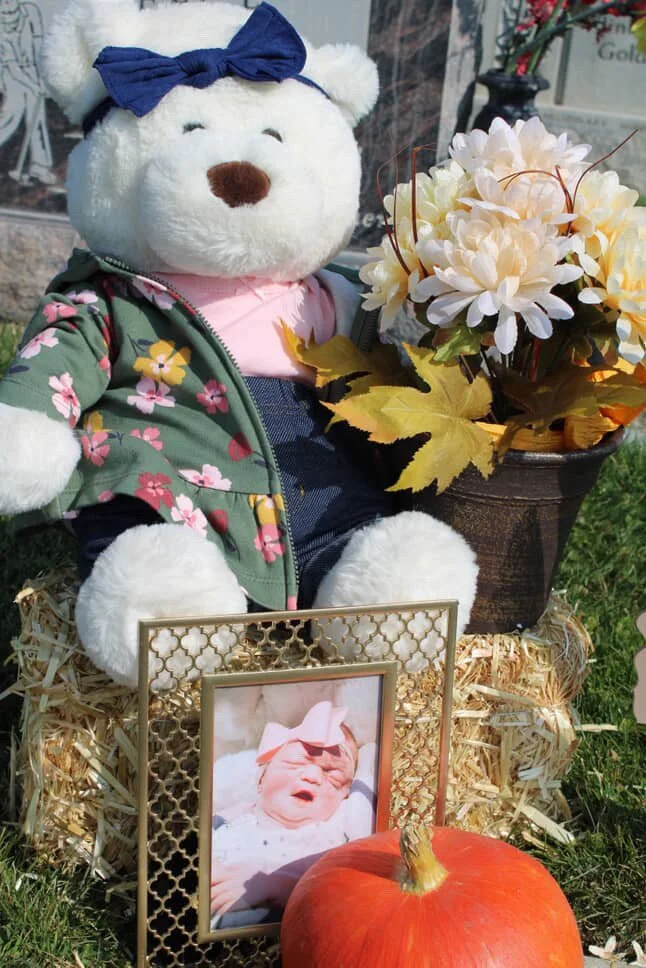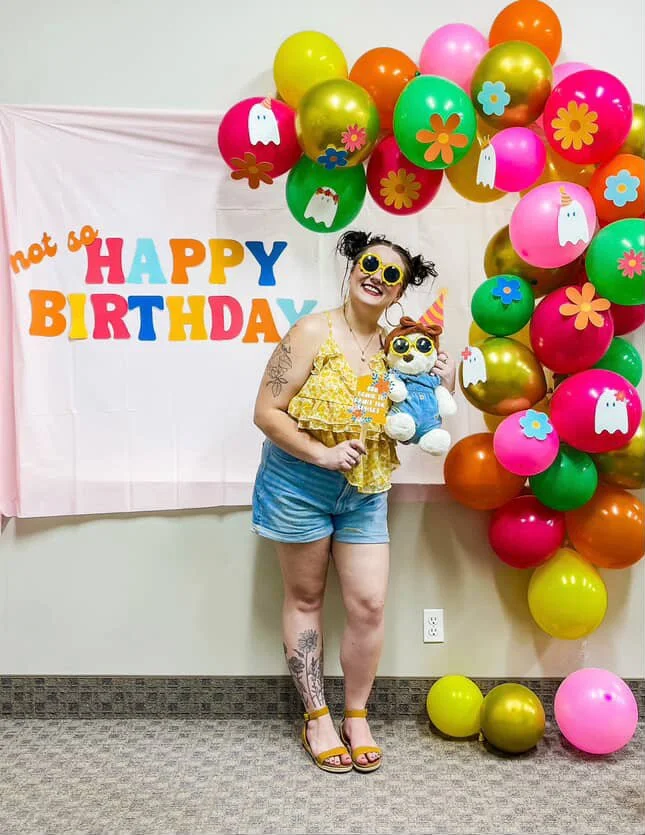How to Support Grieving Parents During Pregnancy and Infant Loss Awareness Month
By Andrea Ealy
Op-Ed | Personal Essay
October is the month we fill our homes with cobwebs, skeletons, and all things spooky. From costumes that creep to treats that entice, Halloween is the season of ghouls, frights, and delights. However, for many families, October holds something that is a real-life scare and every parent's worst nightmare: Pregnancy and Infant Loss Awareness Month. As a loss mom myself, I know how important it is to feel seen and supported during this spooktacular time. Here are four ways you can love and support the loss families in your life.
Inclusion is one of the most powerful forms of support for bereaved parents. We don’t stop being moms and dads just because our children died. What we crave, what makes us feel seen, is knowing our babies are remembered, spoken of, and given space in this world. Death happened to them, but it doesn’t erase who they were. It doesn’t erase their worth or the love we carry. Our children are not defined by their deaths; they are defined by their existence, their impact, and the way they continue to shape our lives.
For me, when someone does even the smallest thing to include Kalena, whether that’s saying her name, writing her on a holiday card, or sending me a photo of the sunset, I feel a deep sense of validation. I feel recognized as her mom. And alongside the ache, I also feel pride. Pride that my daughter’s life still ripples outward, pride that she’s loved by others, pride that she isn’t forgotten.
When you become a bereaved parent, there tends to be a wave of discomfort from the people around you. Let’s face it, death is heavy; it makes people uneasy, and no one knows what to say. But here’s the truth: you can’t fix death. You can’t take away the pain. What you can do is acknowledge it and make sure that the grieving parents don’t have to carry it alone.
Solidarity is about standing with us in the mess, not rushing us through it. It’s about saying, “I don’t have the answers, but I’m here, and I’m not going anywhere.” It’s checking in when the rest of the world goes quiet. It’s holding space for both the sorrow and the love, without judgment.
For loss parents, solidarity creates safety. It reminds us that while grief can be isolating, we don’t have to be invisible. Our children’s lives and our pain matter enough for someone to stand beside us even when it’s uncomfortable. Solidarity gives us the confidence to exist inside the soul-crushing “normal” of bereaved parenthood.
When it comes to supporting a grieving parent, consistency is everything. Grief doesn’t end after the funeral or the first year. Grief lingers, reshapes us, and becomes part of our daily lives. The hardest part is how quickly the world moves on while we’re still learning how to breathe in this new reality.
Consistency means showing up. Not just once, but over and over. Remember the due dates, the anniversaries, the holidays, the monthly milestones. Send a text, drop a card, light a candle, say their child’s name. The gestures don’t have to be grand; they just have to remind us we’re not carrying this weight alone. We want you to also love our babies!
We don’t fake our grief — we fake being okay. Your steady presence gives us permission to be real, to grieve openly, and to feel less invisible in a world that wants us to “move on.” Consistency tells us: I see you, I remember with you, and I’m still here.
With bereaved parenthood comes a constant wave of duality. And it’s not just two emotions, it’s all of them, all the time, colliding and crashing relentlessly, especially in the beginning. Grief and joy, longing and pride, pain and love. They all coexist, often in the same breath.
Duality becomes a necessary tool in navigating this version of parenthood. It’s what allows us to laugh without betraying our grief, to cry without erasing our love, and to hold space for both devastation and beauty. All of it can be true at the same time (confusing? I know).
For supporters, honoring duality means letting us exist in those contradictions without trying to “fix” or simplify them. It means not questioning how we can celebrate and grieve at the same time, but instead recognizing that this is the reality of parenthood after loss.
Duality gives us permission to live fully, even when one piece of our heart will always be missing. It gives us the freedom to still be parents to our babies, even though they died. We can love them, miss them, grieve for them, and still find ways to live, for them.
For more professional grief tips and tricks, follow @kalenaskeepsakes on Instagram and Facebook.
Andrea is a loss mom who is passionate about normalizing normal—especially when it comes to infant loss and normalizing this version of motherhood.



